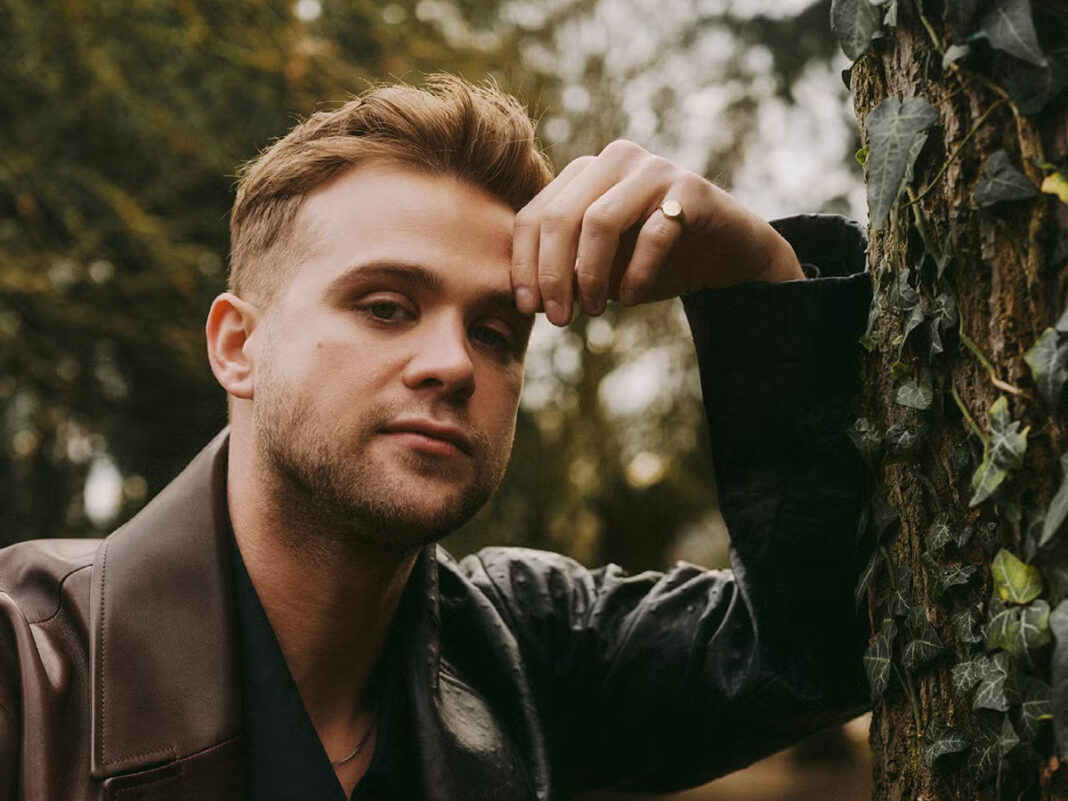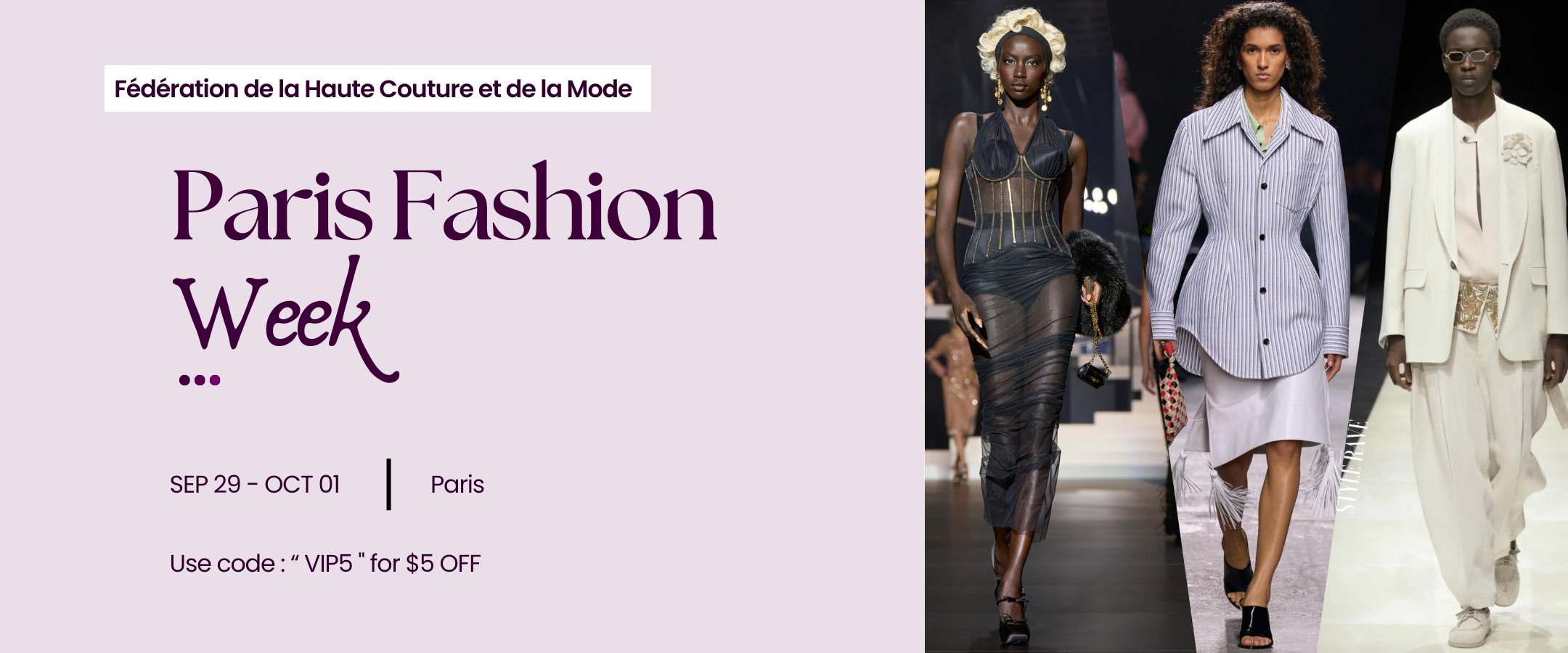It’s a grey Thursday in Notting Hill when Leo Woodall slips into our corner table wearing a wool bomber and that trademark half-smirk. Over coffee—black, no sugar—he waves away the fuss around him with practiced ease. Yet the 28-year-old Londoner can’t hide the spark in his eyes when talk turns to Bridget Jones: Mad About the Boy, his Apple TV+ crime series Prime Target, and the quiet rituals that keep him grounded in a suddenly very noisy world.
Woodall may still see himself as the “bloke from Shepherd’s Bush,” but Hollywood has other plans. Since his breakout as the charming but complex Dexter in One Day, Leo’s career has ricocheted through rom-com royalty, gritty thrillers, and high-fashion campaigns—earning him comparisons to everyone from Hugh Grant to a young Tom Hardy. What sets him apart isn’t just the talent (though there’s plenty of that), but a rare willingness to dissect fame, vulnerability, and masculinity with raw honesty. In this exclusive interview, Woodall opens up about the moments that changed everything, why he still rides the Tube, and what scares him more than a red carpet.
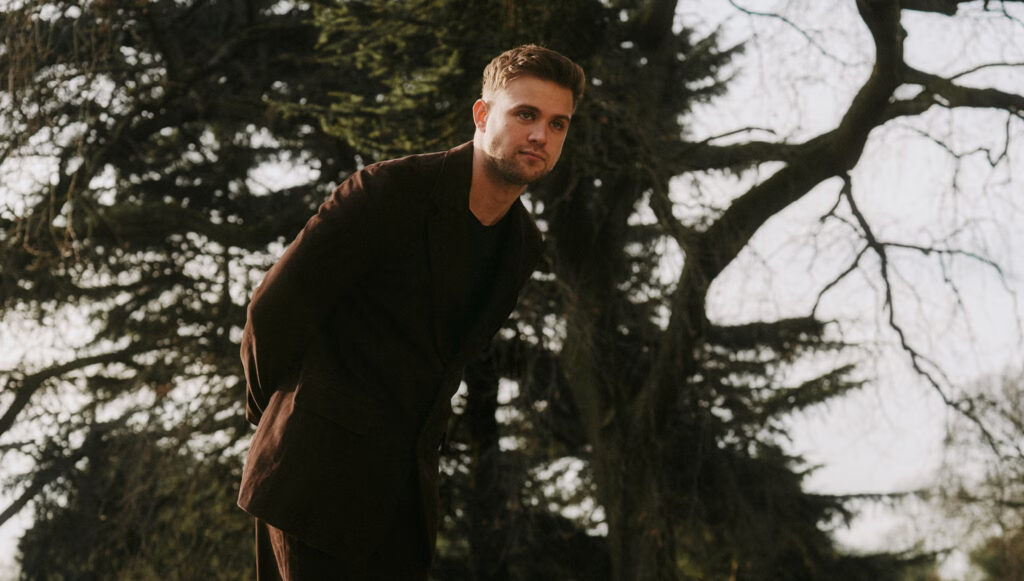
London has known you as “that guy from the Tube” for years. When did you first feel the ground shift?
Leo Woodall:
I remember very clearly—I think it was about a week after One Day dropped on Netflix. I went out to get a pint of milk from the corner shop and it was like a different universe. I had three people stop me before I even made it to the till. That moment was surreal. Suddenly everyone had seen inside my character’s heart and was responding as if they knew me personally. At first it was flattering, but it very quickly became disorienting. I’m someone who really values being low-key and anonymous. The Tube used to be my thinking space. Now I’m second-guessing every glance. You start doing these tiny mental calculations—”Do I recognise them, or do they recognise me?”
But the weirdest thing is how fast it all escalated. Before One Day, people would sometimes say, “Oh hey, weren’t you in The White Lotus?” Now it’s more like, “Dexter!” followed by an emotional download. And I get it—that show hit people in the gut. But there’s a real vulnerability in receiving that level of attention so suddenly.
You’re stepping into rom-com history with Bridget Jones: Mad About the Boy. Any pressure playing Roxster—the “Boy” himself?
Leo Woodall:
Absolutely. I mean, Bridget Jones is sacred territory in Britain. The pressure wasn’t just about the script—it was cultural. Everyone has an opinion about who Bridget should end up with, what she represents, and what the tone should be. So yeah, stepping into that world as Roxster, I felt the heat. He’s a younger man, he’s cheeky, but he’s also sincere, and I didn’t want him to just be comic relief or eye candy. He had to feel real.
We shot our first scenes in Hampstead Heath—where Roxster literally meets Bridget stuck up a tree—and I just kept thinking, “This is going to be in the trailer. I can’t mess this up.” So I prepped hard. Physically, yeah, there was gym stuff. But emotionally, I kept asking myself: what would make this guy truly fall for someone like Bridget? Not just the younger-boy-meets-older-woman trope, but something more grounded. I wanted audiences to see his depth without it feeling heavy-handed.
And working with Renée? Total dream. She’s funny and sharp and incredibly present. There was never a moment where I felt like I was performing at her. We were just in it together.
Let’s talk Prime Target on Apple TV+. How did you shift from romantic lead to hardened anti-hero?
Leo Woodall:
That transition was the challenge I’d been waiting for. Prime Target is darker, messier, more morally ambiguous. My character’s caught in this web of crime and tech, and it meant I had to peel back all that easy charm people associate with me. I actually kept a private journal in character—writing as him, processing things the way he would. I wanted to understand his code of ethics, even if it’s not one I personally relate to.
We shot a lot of it in Eastern Europe in the dead of winter, and it was brutal but effective. The cold sort of seeped into my bones and helped me stay in that mindset. It was less about “acting tough” and more about staying still, staying alert. There are moments in the show where it’s just the camera, me, and a single breath—those are the scenes I live for.
You’ve been called a “reluctant heart-throb.” What’s your take on that label?
Leo Woodall:
Honestly, I think it’s hilarious. I’m just this bloke from Shepherd’s Bush who grew up on pub football and chicken shops. But yeah, I get it—when you play a certain kind of role, people put you in that box. Still, I find the whole concept of a “heart-throb” outdated. Like, what does that even mean today? Is it about looks? Is it about sensitivity? Because if you ask my friends, they’ll tell you I’m the least suave person in any room. I trip over words, I spill drinks. I love pizza too much to maintain a six-pack year-round. So yeah, it’s a funny tag, but I don’t take it too seriously.
What I do take seriously is the connection. If someone tells me they saw a bit of themselves in Dexter, or Roxster gave them hope after heartbreak, that matters to me. That’s the real stuff.
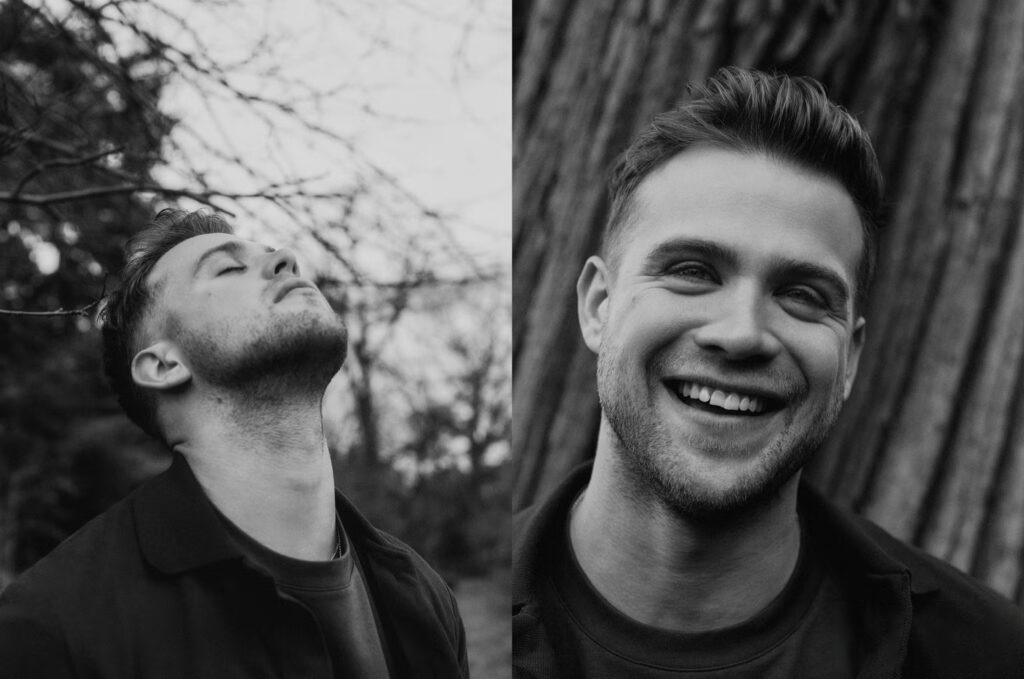
You’ve worked with some icons lately. Any moments that really stuck with you?
Leo Woodall:
So many. Watching Renée navigate a Bridget scene is like attending a masterclass without paying tuition. And Chiwetel Ejiofor—the guy is a powerhouse. There’s a scene where he takes his shirt off and I just remember thinking, “I need to hit the gym right now or never take my top off again.” But it wasn’t just about appearance—he’s got this effortless gravitas.
Also, I did get to meet Adam Brody briefly at the Emmys. That was huge for me. The OC was sacred viewing in my teens. I just walked right up to him and blurted out something about Sandy Cohen and fatherhood. He was lovely about it, thankfully.
Your style’s evolved a lot—especially since that Loewe campaign. What’s your relationship with fashion now?
Leo Woodall:
Fashion used to scare me. It felt like this exclusive club and I didn’t know the password. But Loewe really changed my perspective. The shoot was wild—I wore these shiny gold trousers that I thought would be a disaster, but they actually made me feel kind of invincible. Now I see style as an extension of storytelling. I can walk into a room and set the tone without saying a word.
Don’t get me wrong, I’m still a sucker for a battered pair of Converse and a hoodie. But I’m less afraid to experiment. If I can wear a velvet blazer and still feel like myself, that’s a win.
Where do you go when you want to feel like yourself again?
Leo Woodall:
Honestly? A flat in East London with my brother. We’ve got this completely dysfunctional fridge and a mountain of laundry we never get to. But that place—it’s home. We cook terrible pasta, binge horror movies, and argue about whose turn it is to buy toilet paper.
I also box a lot. There’s something about that early morning discipline that strips away the noise. You’re not famous in a boxing gym. You’re just someone trying to land a clean jab and not get hit in the face. It brings me back to zero.
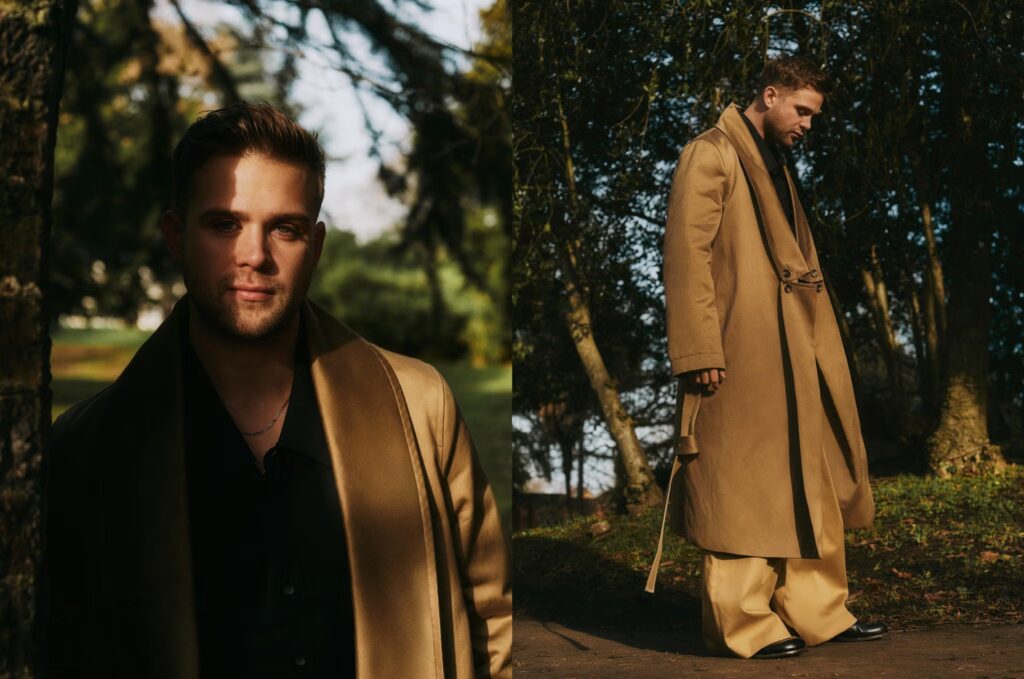
Last one—what’s the vision for the next year?
Leo Woodall:
Growth, but the kind that doesn’t make headlines. I want to take risks that challenge me, not just make me more visible. There’s a film in the works called Turner that might surprise people. It’s about a piano tuner who moonlights as a safecracker. Totally out of left field, and I’m learning piano from scratch, which is both humbling and frustrating.
More than anything, I just want to keep the joy in it. The second it stops being fun, I’m out. But right now? It’s the best job in the world.

